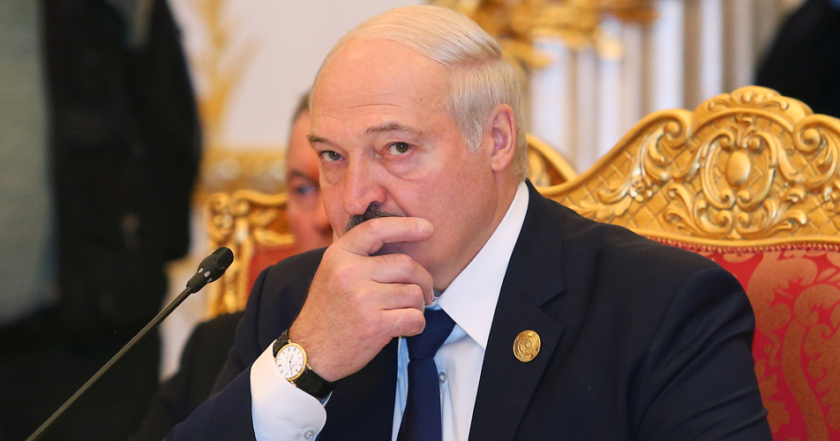Kremlin's nuclear saber-rattling with Oreshnik missile deployment in Belarus does not heighten threat to Ukraine or NATO – ISW

Photo: Reuters
Despite the Kremlin's bold statements, Russia's deployment of Oreshnik ballistic missiles in Belarus does not pose any significant threats to Ukraine or NATO. It appears to be nothing more than a show of force from the Kremlin, rattling its nuclear saber.
The American Institute for the Study of War (ISW) reported that.
Experts speculate that Moscow is taking these actions as a strategic move to showcase its dominance and intensify pressure on the Western world.
At the Supreme State Council of the Union State meeting, Russian President Vladimir Putin emphasized Russia's missile power by using Oreshnik as a symbol of strength. According to the ISW experts, this is seen as a deliberate tactic by the Kremlin to sway public opinion.
The Russian Foreign Minister, Sergei Lavrov, also brought up the Oreshnik attack on the city of Dnipro, Ukraine, on November 21. He stated that this demonstrates Moscow's willingness to employ "any measures" to achieve its objectives.
However, according to ISW, these statements do not indicate the presence of new technological advances or specific changes in the Russian missile arsenal.
ISW experts believe that:
- The deployment of Oreshnik missiles in Belarus does not increase the risks for NATO or Ukraine. Russia already has nuclear weapons capable of hitting these targets, deployed in the Kaliningrad region and on the Russian mainland.
- Other means of destruction (ballistic missiles Iskander, Kinzhal, and cruise missiles Kh-101) provide the Kremlin with sufficient range and power for potential attacks.
"Russia's deployment of Oreshnik missiles to Belarus does not significantly change the threat to Ukraine or NATO given that the Russian military has long had nuclear weapons in mainland Russia and the enclave of Kaliningrad capable of striking targets in Ukraine and NATO. Russian forces fire nuclear-capable Iskander ballistic missiles, Kinzhal hypersonic ballistic missiles, and nuclear-capable Kh-101 cruise missiles against Ukraine regularly," the Institute for the Study of War report says.
Meanwhile, Russia continues to advance its strategic efforts to de facto annex Belarus and further expand the presence of Russian military forces in the country through the Union State mechanism.
In turn, Alexander Lukashenko is trying to preserve Belarus' sovereignty in the face of increasing pressure from Moscow. His public statements about the need for Belarusian control over the Oreshnik missiles and systems such as the S-400 indicate attempts to defend at least a formal independence within the Union State.
However, ISW notes that Lukashenko's efforts are largely unsuccessful. The Oreshnik missiles will remain under the direct control of the Russian military, as will other Russian strategic assets on the territory of Belarus.
"Lukashenko has long attempted to compete against the Kremlin to determine whether Belarus can assert control over Russian military assets – such as advanced S-400 air defense systems – deployed to Belarus. Belarusian Security Council State Secretary Alexander Volfovich similarly baselessly claimed that only Lukashenko could issue the order to use the Russian tactical nuclear weapons deployed in Belarus," the report says.
According to ISW, Lukashenko stated that Russian troops will continue to operate the Oreshnik system in Belarus. This suggests that Moscow will maintain authority over any ballistic missiles of this nature stationed in the Union State.
For reference:
On December 6, the self-proclaimed President of Belarus, Alexander Lukashenko, asked Vladimir Putin to deploy the Oreshnik missile system on his country's territory. The Russian dictator promised to do this in 2025.
It is worth noting that on the same day, Alexander Lukashenko and Vladimir Putin, the heads of the Minsk and Kremlin regimes, signed an agreement on guarantees of the Union State's security. The agreement allows the use of any means, including Russian nuclear weapons, to protect both countries.






















































